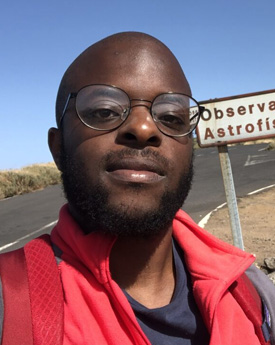Dr John Stott
Senior Lecturer in AstrophysicsResearch Interests
My research concentrates on distant star-forming galaxies and the evolution of the members of rich galaxy clusters. I also incorporate A.I. into my astronomical research and have recently branched out into using A.I. to detect icebergs. An up to date list of my publications on NASA ADS can be found here and my Google Scholar page is here
PhD Supervision Interests
The quenching of galaxies across environment and cosmic time:As the Universe ages, galaxies find themselves drawn together into filaments, groups and clusters. Galaxies entering these dense environments can experience processes which ultimately lead to a dramatic change in their appearance and internal properties. This project will discover how galaxies are transformed ("quenched") from blue star-forming spiral discs (like our own Milky Way) into passive red elliptical galaxies, through interactions with their environment.
This PhD project will be a detailed study of galaxy transformation with environment, comparing those in massive galaxy clusters to the low density "field" environment. You will use spectroscopy and imaging from Hubble Space Telescope, Very Large Telescope, Subaru telescope, WEAVE/William Herschel Telescope, James Webb Space Telescope and the revolutionary Legacy Survey of Space and Time. The results of this project will be physically interpreted through comparison with the outputs from state-of-the-art cosmological simulations of galaxy formation.
-
LSST: UK Data Release Processing funding 1 April 2024 - 31 March 2027
01/04/2024 → 31/03/2027
Research
-
ICECOMM : Commercialising a system to improve maritime safety with artificially intelligent iceberg and sea ice detection
01/11/2023 → 31/01/2026
Research
-
DSI: Tracking icebergs with artificial intelligence techniques used in astrophysics
01/07/2021 → 30/04/2022
Research
-
Lancaster University Observational Astrophysics 2021-2024 (OAstro21)
01/04/2021 → 31/03/2025
Research
-
Lancaster University: Observational Astrophysics PATT grant 2018-2020
01/10/2018 → 30/09/2020
Research
-
Lancaster University Astrophysics
01/04/2017 → 31/03/2018
Research
National Astronomy Meeting 2019
Participation in conference -Mixed Audience
- Centre of Excellence in Environmental Data Science
- DSI - Foundations
- Observational Astrophysics







